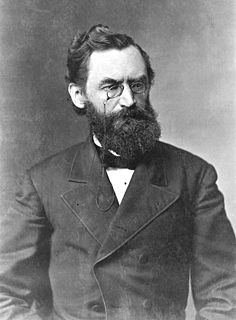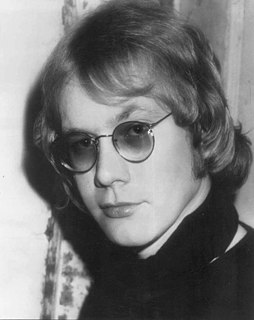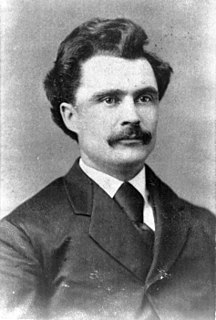A Quote by Carl Schurz
When the life of the nation was attempted, when the cause of liberty and human rights called for their aid, they rushed forth to rally under the banner they loved, with grand singleness of purpose and heroic devotion--leaving all behind them, to meet toil and danger, hunger, sickness, wounds, and death, for nothing but the sublime satisfaction of doing their duty to their country and to mankind.
Related Quotes
Those rights, then, which God and nature have established, and are therefore called natural rights, such as life and liberty, need not the aid of human laws to be more effectually invested in every man than they are; neither do they receive any additional strength when declared by the municipal laws to be inviolate. On the contrary, no human legislature has power to abridge or destroy them, unless the owner shall himself commit some act that amounts to a forfeiture.
For a bag of pepper, they could cut each other's throats without hesitation, and would forswear their souls... The bizarre obstinacy of that desire made them defy death in a thousand shapes; the unknown seas, the loathsome diseases; wounds, captivity, hunger, pestilence and despair. It made them great! By heavens! It made them heroic; and it made them pathetic, too, in their craving for trade with the inflexible death levying its toll on young and old
In a moment when the outcome of our revolution was most in doubt the father of our nation ordered these words be read to the people. Let it be told to the future world that in the depth of winter, when nothing but hope and virtue could survive, that the city and the country alarmed at one common danger came forth to meet it.
I charge [my sons] never to let the motives of private interest or ambition to influence them to betray, nor the terrors of poverty and disgrace, or the fear of danger or of death deter them from asserting the liberty of their country, and endeavoring to transmit to their posterity those sacred rights to which themselves were born
We remember those who were called upon to give all a person can give, and we remember those who were prepared to make that sacrifice if it were demanded of them in the line of duty, though it never was. Most of all, we remember the devotion and gallantry with which all of them ennobled their nation as they became champions of a noble cause.
When a teacher of the future comes to point out to the youth of America how the highest rewards of intellect and devotion can be gained, he may say to them, not by subtlety and intrigue; not by wire pulling and demagoguery; not by the arts of popularity; not by skill and shiftiness in following expediency; but by being firm in devotion to the principles of manhood and the application of morals and the courage of righteousness in the public life of our country; by being a man without guile and without fear, without selfishness, and with devotion to duty, devotion to his country.
Late have I loved you, O beauty ever ancient, ever new. Late have I loved you. You have called to me, and have called out, and have shattered my deafness. You have blazed forth with light and have put my blindness to flight! You have sent forth fragrance, and I have drawn in my breath, and I pant after you. I have tasted you, and I hunger and thirst after you. You have touched me, and I have burned for your peace.
It is heroic to prepare for war with a tyrant power. Patriots will always win the admiration of mankind for daring to meet the bloodshed of battle for their country's liberty. But the patriot who is willing to go to that sacrifice will be the first to condemn the aimless and secret shedding of blood in time of peace.
Love of country cannot be a supersized version of individual narcissism. True love of country-of this country-is love of our children, of a creed that promises them a better life before it promises us anything, and embraces the sacrifices needed to make that better life. True love of country is giving ourselves to a cause and a purpose larger than ourselves. And that cause is to make liberty worth having, to make the pursuit of happiness deeper than the quest for personal pleasure, and to leave a legacy of progress and possibility.




































